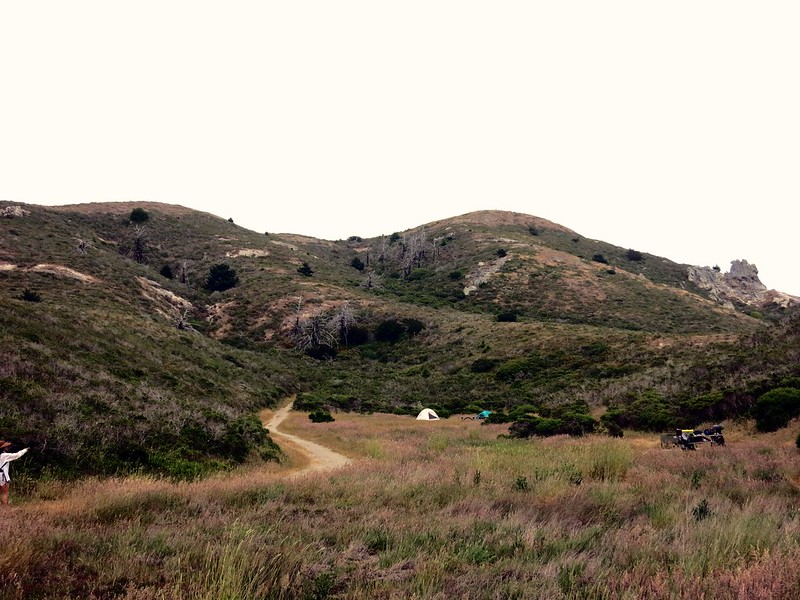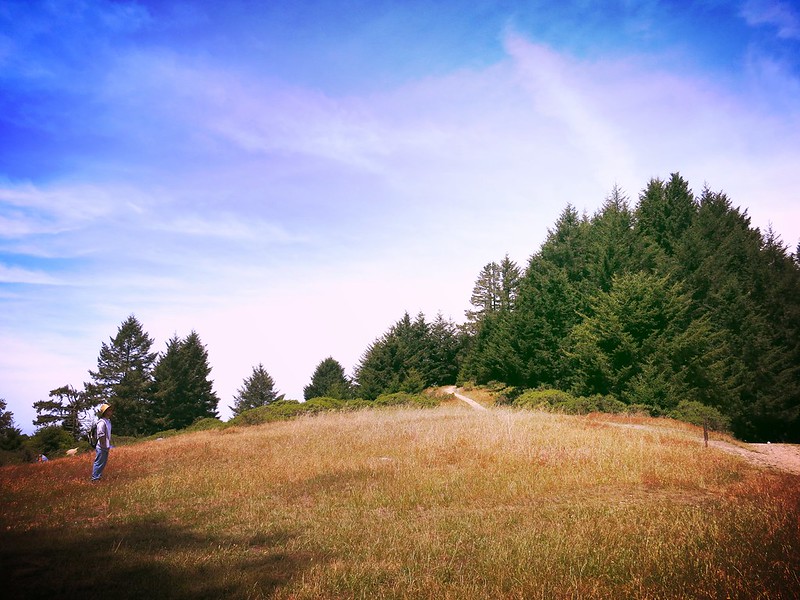 |
| Etsy |
Friday, July 25, 2014
ART PRINT
Wednesday, July 23, 2014
CREATIVITY - AS EXPLAINED BY NANCY ANDREASEN

So this is my private, not so secret obsession: creativity, and how to nurture it. Or, to put it more bluntly, how can I get my muse to appear when I need her?
Creativity comes in many forms. You can see it expressed most obviously in the arts, but also in novel scientific approaches, inventions, or the kind of thinking that diverges from the norm. What if you were to study this process, steadily over time, in people who have been able to channel their creativity to achieve great levels of success? Would a pattern emerge?
This is precisely what Nancy Andreasen has done, in her article Secrets of the Creative Brain. She monitored participants' REST: Random Episodic Silent Thoughts, which are periods of free association. In doing so, she found that
"almost all of my subjects confirmed that when eureka moments occur, they tend to be precipitated by long periods of preparation and incubation, and to strike when the mind is relaxed - during that state we called REST."
What is it that the mind is doing during REST? Andreasen's theory is that the mind is making subconscious connections, knitting together random bits of information into a comprehensive whole. The creative mind, as opposed to the non-creative, is exceptionally good at this process. Andreasen theorizes that
"creative people are better at recognizing relationships, making associations and connections, and seeing things in an original way - seeing things that others cannot see."
However, as a caveat, "not all of these connections actually exist."
In practice, the characteristic that a successful creative needs to truly thrive, is persistence. When you create something that is entirely novel, you are going against the grain of what has gone before, and this will be met automatically with skepticism. To succeed, you need to have an inherent belief in your work. You need to continue to push forward in the face of contention, and to meet resistance with perseverance.
I'm paraphrasing, of course. The article goes into far greater depth than what I've written. I just picked out some titillating items, but you can read the full piece Here. I highly recommend it.
Friday, July 18, 2014
SIDE CHARACTERS: HOMELAND'S PETER QUINN
Almost. I am almost caught up on the 3rd season of Homeland. I've had to dodge spoilers like the Matrix, avoiding all potential leak points. You have to be constantly, almost hyper-vigilant in avoiding any and all sources of information.
I'm not going to discuss the two leads. I think a good show, a good story, lies in the details, such as in having side characters that intrigue and have the same gravity as a lead, only their bit of the story carries less of a punch. So for Homeland, there is Peter Quinn. Granted, the actor's cheekbones are amazing. But once you get over that part, and it make take awhile, you start to notice details. The two leads bring the hard hitting drama. She's bipolar, he's a traitor, and they are surrounded by terrorists and inept CIA bureaucracy. So, there is a strong foundation here for intense dramatic scenes. The show is full of them. They're great, I'm not complaining.
Everyone on this show is in crisis, and they express this all according to their character. While I like overt confrontations, it's also nice to note that off to the side there, this Peter Quinn person is quietly going through a complete meltdown. It is the most contained, competent meltdown I have ever seen. His work doesn't seem to be suffering. He is still an effective agent, and can still stakeout his targets diligently for hours upon days. I've come to the conclusion that this character wears CIA-issue diapers and eats babyfood. There is no way one person can sit that long without eating and well...that other thing.
Carrie/Claire Danes is almost transparent - every emotion shows on her face. Quinn, in contrast, is almost a blank canvas - he blends in, because he allows others to project their own perceptions onto him, while keeping his own to himself. His clothes are absolutely generic. Nothing stands out. You only know he's in crisis because he tells you/Carrie/you. I like the internal crisis. It's difficult to impossible to portray. You wonder where this will lead in a person with such immaculate control.
Wednesday, July 16, 2014
THE ALMOND OF EVIL
| Roxana Bashyrova/Shutterstock |
No one has anything bad to say about the almond. It's high in protein, vitamins, and the fats that are good for you. I probably have some in my mouth right now. Almonds are good = eat almonds. Unfortunately, as someone who lives in California, almonds also happen to be sucking my state dry of water, and this at a time when California is in drought.
I've always appreciated people who can see life on a grander scale, people who can plan and execute a seven book series*, people who can read the patterns in the earth. I suffer from nutrition myopia where food is concerned, that is to say, I cannot see beyond eating based on my own health. And that's pretty much it.
However, I remember coming across an article from 2012 (don't ask) featuring James Beard Award-winning Chef Dan Barber, owner of the Blue Hill Restaurant in New York, and a resident locavore. If you are looking for someone able to see food on a grander scale, he may be one to follow.
Now, here's Barber in own words. Note, he's not a punch-puller:
"I'd like some to explain the phenomenon of the self-righteous vegetarian to me. I'm not here to say I don't eat vegetables—I do, a lot of them—but, from a soil perspective, they're actually more costly than a cow grazing on grass. Vegetables deplete soil. They're extractive. If soil has a bank account, vegetables make the largest withdrawals. So without animal manure, where are you going to get your soil fertility for all those vegetables in an organic system? You are, by some measures, forcing crops into a kind of imbalance.
Butchering and eating animals may not be called kindness, but eating soy burgers that rely on pesticides and fertilizers precipitates destruction too. You don't have to eat meat, but you should have the good judgment to relinquish the high horse. There is no such thing as guilt-free eating.
What's the definition of a healthy diet, the kind you can actually feel a little smug about? There isn't one answer, of course, because it depends on where you live and what time of year it is.
Good diets, like great cuisines, are filled with diversity—grains, vegetables and a smattering of meat (not big 12-ounce sirloins, but utilizing every part of the animal). The proportions vary depending on the region and the climate. But modern agriculture separates animals and vegetables and grains; we've broken apart the system, which means we've broken the nutrient cycle. So now you need to import your nutrients in cheap chemical form rather than using manure. We've allowed dinner to become less diverse, less nutritious and a lot less flavorful."
"True sustainability is about more than just deciding to cook with local ingredients or not allowing your child to have corn syrup. It's about cuisine that's evolved out of what the land is telling you it wants to grow. As one farmer said to me, Food systems don't last; cuisine does."
From the Wall Street Journal.
*Cheers to you, Game of Thrones author George RR Martin, and please don't die before completing the series.
Friday, July 11, 2014
Wednesday, July 9, 2014
DECISIONS, DECISIONS AND INJURIES

So this happened.
I was trying to get a shot of trees - the ones in the background - and that highly unphotogenic branch made it into every shot, at every angle, at every twist and turn. At some point, I decided to just go with it and see what happened. Well, this happened.
Now let's talk about my arm. Because when I see this shot now, that branch makes me think of my arm. About a week ago, my bike slipped on a wet patch and I hit the ground hard. The force divided pretty much equally between my arm and my hip, injuring both.
I can now say, with conviction, that injury proceeds in three distinct stages.
- shock and awe*
- numbness, and
- interpretation.
Let me focus in on this second stage, the numb stage. It's probably the shortest, or ostensibly the least interesting, the least emotional stage, but it's a critical stage, because this is when the mind starts to tell you a story. The mind naturally gravitates towards storytelling. It wants to find explanations, to impart significance, even when there are none to be had.
While I was waiting for feeling to come back into my arm and leg, so I could basically use them again as appendages and pedal home, my mind began trying out various explanations. Here are some of the more obvious ones:
- I was never meant to ride a bike, it wasn't meant to be.
- The universe is sending me a sign, and it involves never getting near a bike ever again, and also it prevented me from an even worse fate just around the corner.
- This is a punishment. For what? I don't know. TBD
- And so on.
Most of these fall towards the dramatic end of the rationale spectrum and completely ignore the more mundane explanations: that this was just the natural consequence of the water on a metal surface causing a lack of traction, sufficient to make the wheel glide, and then for me to hit hard ground, etc. I should wet metal surfaces in future. Boring.
In the middle of these explanations, I realized, that these were all options that I could decide to believe. Or not. The bad part is, I do gravitate towards explanations that involve universal meaning. I don't know if it's human nature or my nature, but it is more emotionally exciting to pick option 2. But that might stop me from getting on a bike ever again.
So I decided to think of this as an accident without meaning, and to get back on the bike. I have to constantly remind myself of this decision, because again, it's not where my mind naturally goes.
What I find intriguing is that this is a decision that you can make, while lying semi-prone waiting for feeing in your limbs to return - you can decide how to interpret trauma.
*lying on the ground until feeling comes back into your extremities
Wednesday, July 2, 2014
Monday, June 30, 2014
FUN LINKS

Some great reads for when you're bored with your phone next to the barbecue.
Health
The Ultimate Guide to Vitamins and Minerals
Finally! A comprehensive and relatively short guide about the vitamins you need, and how to get them. If only life in general could be this direct and concise.
Finally! A comprehensive and relatively short guide about the vitamins you need, and how to get them. If only life in general could be this direct and concise.
Travel
Now that you've returned from your yearly spring vacation, here's some travel tips. For next year.
Health Part 2
It may be time to bring sexy glass bottles back. Especially glass baby bottles.
Relationships
The best relationship advice sometimes sounds vaguely familiar. It sounds like thoughts that have been floating around in your subconscious, finally put into words.
Cute
Mirai Chan - A Very Cute Japanese Little Girl
You have to see her wonderfully expressive face. You have to.
Read
Free Philip K. Dick: Download 13 Great Science Fiction Stories
You have to see her wonderfully expressive face. You have to.
Read
Free Philip K. Dick: Download 13 Great Science Fiction Stories
Every once in a while, it's good to wander outside your reading comfort zone. Science fiction lies outside of mine, but Dick has such a strong reputation that he's pretty much a guaranteed good time.
Thursday, June 26, 2014
YOUR FRIENDLY THURSDAY REMINDER
Wednesday, June 25, 2014
GABRIEL GARCIA MARQUEZ: THE PROCESS

During an informal survey in one of my English classes, the professor moved down a line of students, asking each person the same question: What is your favorite book?
The answers that came, with few exceptions, were identical: One Hundred Years of Solitude.
So, when I read Marquez's obituary in the Economist, detailing how that book came into being, I thought I would share:
"In July 1965 Garbriel Garcia Marquez - Gabo to all who revered him later - decided to lock himself away in a house on Calle de La Loma in Mexico City. He ordered his wife to sell the car and get credit from the butcher. For 15 months, using only his index fingers, he typed for six hours a day in a room he called "The Cave of the Mafia." He survived on a diet of good Scotch and constant cigarettes. At five in the afternoon he would emerge in to the fading light with his eyes wide, as though he had discoursed with the dead...
"'One Hundred Years of Solitude,' the fruit of his self-imprisonment, sold 50m copies in more than 30 languages...
"Writing was difficult; the words came as painfully as kidney stones. Nonetheless, there was nothing else he had wanted to do in life. He burned 'to write so I would not die.'"
Subscribe to:
Posts (Atom)


